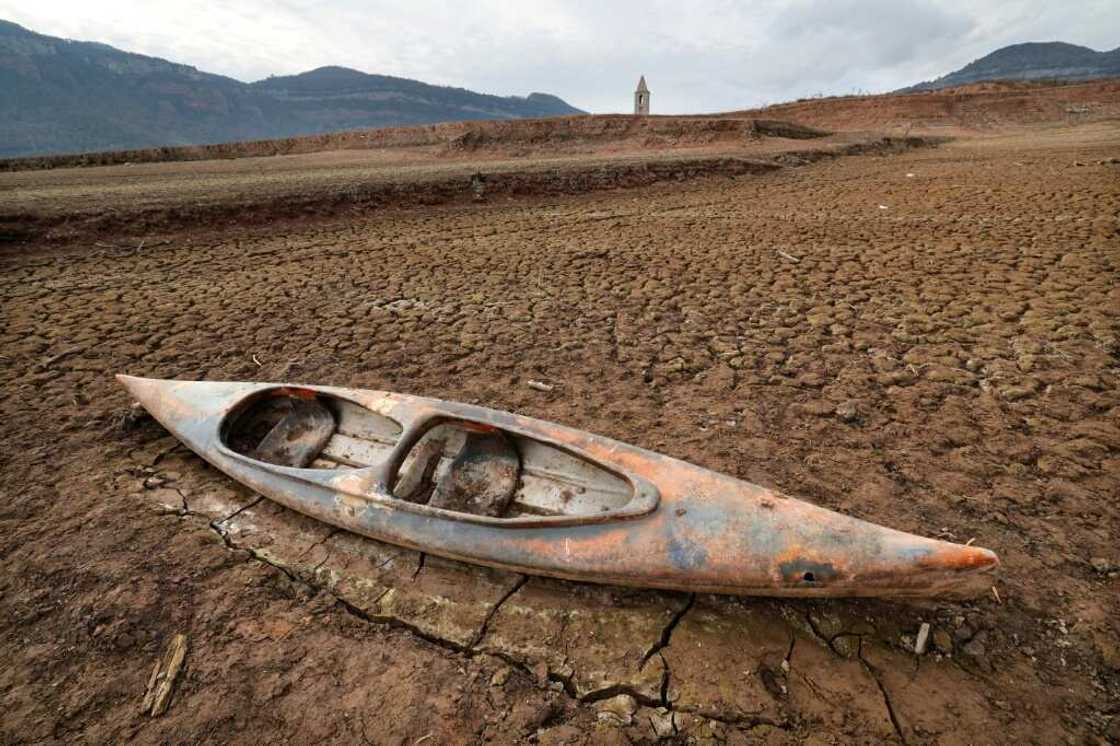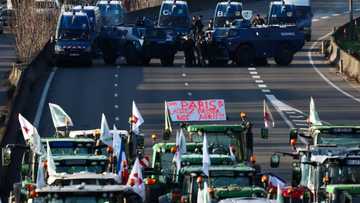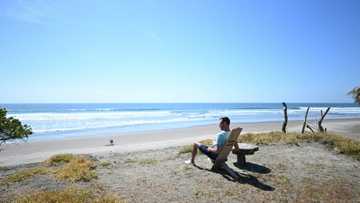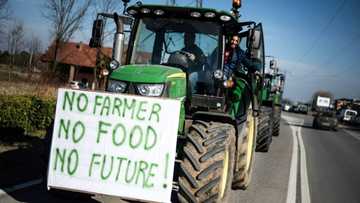Catalonia declares drought emergency for Barcelona

Source: AFP
PAY ATTENTION: The 2024 Business Leaders Awards Present Entrepreneurs that Change Nigeria for the Better. Check out their Stories!
Spain's northeastern Catalonia region declared a drought emergency for Barcelona on Thursday and the surrounding area, which will now face tighter water restrictions following three years without significant rain.
The head of the regional government of Catalonia, Pere Aragones, announced the step after reservoirs in the Mediterranean region saw their water levels falling to below 16 percent of full capacity.
That is the benchmark set by the authorities for applying a new round of water-saving measures that will affect some six million people.
"Catalonia is suffering the worst drought in the last century. We have never faced such a long and intense drought since rainfall records began," Aragones told a news conference.
The rainwater levels in some reservoirs in Catalonia -- whose capital Barcelona is Spain's second-largest city -- are so low that old constructions like bridges and a church bell tower have resurfaced.
The emergency aims to lower the daily amount of water households and local councils are allowed to use from 210 to 200 litres (55 to 52 gallons) per person.
PAY ATTENTION: Share your outstanding story with our editors! Please reach us through info@corp.legit.ng!
If the drought worsens, the limit could be lowered to 180 litres, and then 160 litres.
The water use restrictions will apply to Barcelona and 201 surrounding local councils from Friday.
They include a ban on filling private swimming pools and washing cars unless it is with recycled water.
Public gardens can only be irrigated with groundwater.
'Catastrophic situation'
If the drought persists, even tighter restrictions will be introduced, such as closing showers in gyms and totally banning watering in public parks.
Hotels are preparing to use seawater in their pools and adapting toilets so they use less water to flush.
Farms and industries will face greater cuts.
The emergency declaration aims to cut the amount of water used to irrigating crops by 80 percent, twice as stringent as the 40-percent reduction introduced in November.
Industries must cut water use by 25 percent, up from 15 percent.
Rainfall has been lower than the average in Catalonia for the past three years.
The drought has lasted more than twice as long as the previous dry spell of 2008, the regional government says.
The lack of rainfall "has been going on for a very long time," Xavier Sanchez Vila, head of the civil and environmental engineering department at the Polytechnic University of Catalonia, told AFP.
"If it goes on for another year, the situation will be catastrophic."
The southern region of Andalusia is also struggling with a severe drought, with regional authorities warning water use restrictions will be needed in cities like Seville and Malaga in the summer if the lack of rain persists
Water supplies by boat
Both regions, which are Spain's two most populous, are preparing to import fresh water by boat if needed, an expensive option which officials admit would not make up for the lack of rain.
"We need 30 days of rain" in a row, the head of the regional government of Andalusia, Juan Manuel Moreno, said recently.
"Not drizzle but real rain."
Several heatwaves recorded in Spain and wider Europe last summer worsened the shortage because more water evaporated from reservoirs and consumers used more to keep cool.
Unseasonally warm weather has continued into 2024.
Temperatures rose to nearly 30 degrees Celsius (86 Fahrenheit) in some regions in January -- a heat level usually seen in June.
Experts say climate change driven by human activity is boosting the intensity and frequency of extreme weather events, such as heatwaves, droughts and wildfires.
Catalonia has built desalination plants and adopted other measures but experts say it is crucial to improve the use of both wastewater and groundwater resources.
PAY ATTENTION: Stay Informed and follow us on Google News!
Source: AFP





